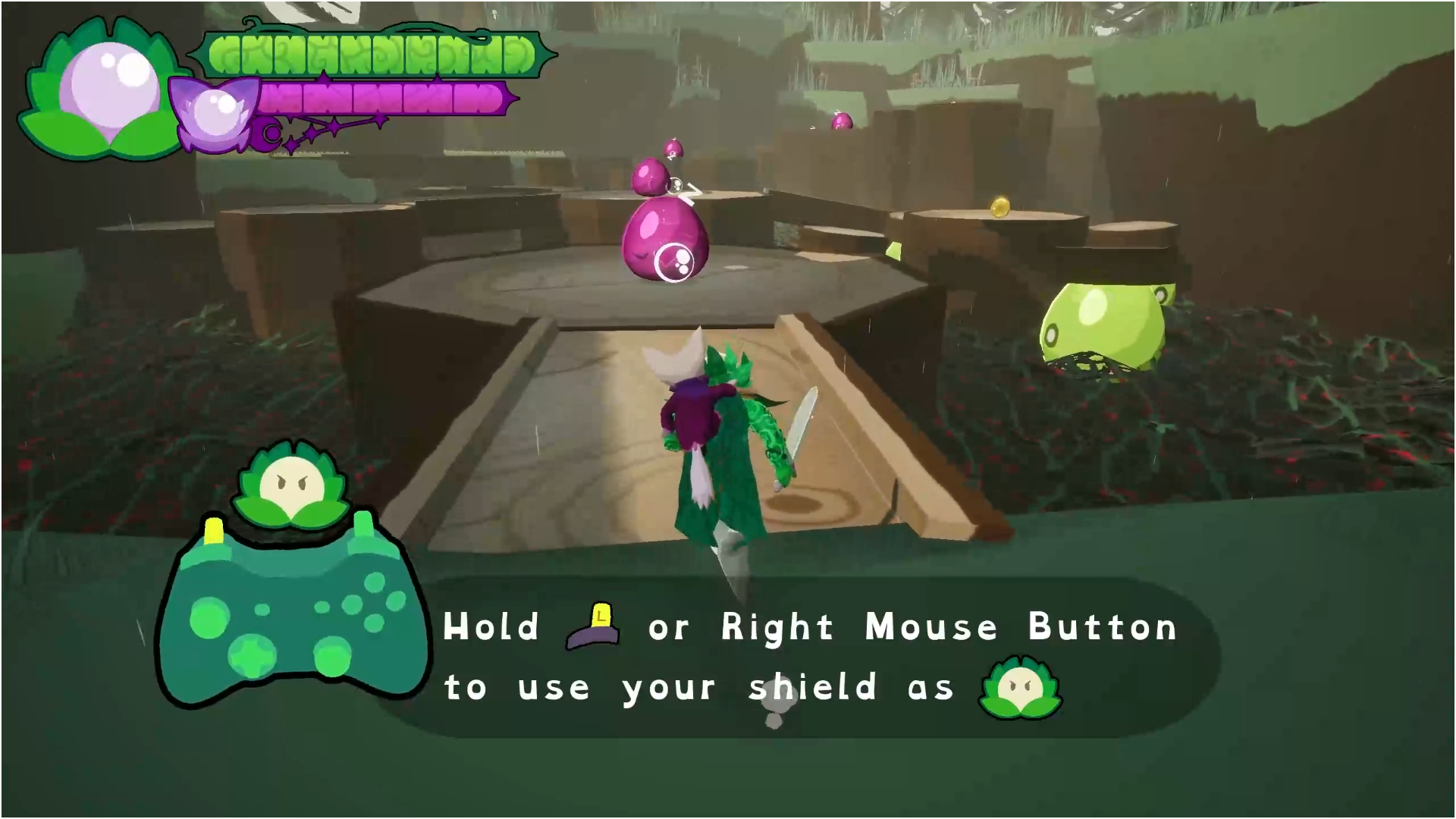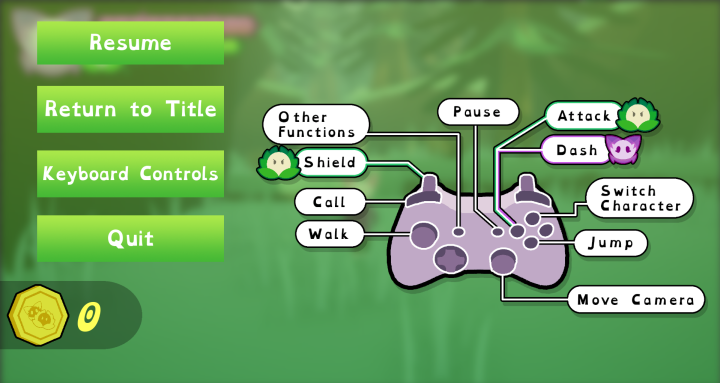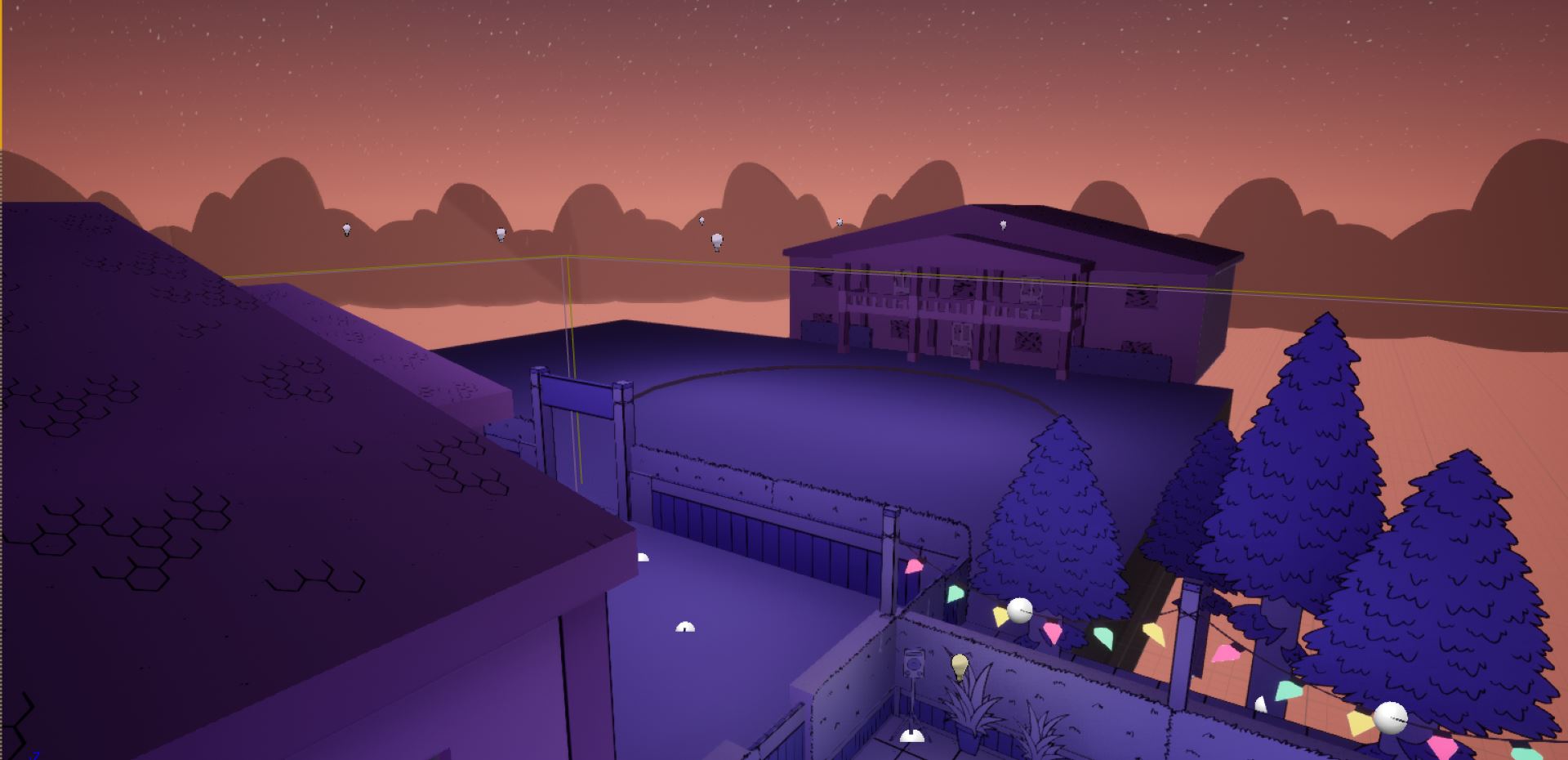Game Dev Diaries: Entry 3 – Getting to Know Our Devs
Game Dev Diaries is a series of articles and videos that follows a cohort of young game design students as they embark on their final projects. With interviews, insights, and interesting viewpoints, these articles aim to showcase these talented game designers and give you a peek into what it’s like to learn and become an indie games designer through university. For the third entry, I decided to sit down one on one with some students and get some insights into their roles, their work, and the pros and cons of what they do.
This article is part of an ongoing series that follows a group of game design students as they develop their final projects. These are On The Brink by Holly Steventon and Jay Sculfor, Cryptid Party by Tia Cameron, and Cauliflower Knight By Edward Hayward, Casey Cooper, and Mihails Mozajevs. Check out the other entries to Game Dev Diaries to see how the games develop and hear from these talented young developers!
For this entry into Game Dev Diaries, I decided to try something a bit different. The last few visits to CCCU Games design have involved chatting to the groups and students about their games and the progress, ups and downs, and generally the experience of development. This time around, I wanted to try something a bit more personal. Just before the Easter break, I was able to sit with Mihails, Holly, Edward, and Tia one on one and have more candid, open discussions about their chosen roles in both the project and their potential careers. Diving into their motivations, accomplishments, and future aspirations, these interviews proved to be a rewarding and insightful chance to get to know the people making the games and what they enjoy about their role in game design and development.
Edward Hayward – Game Designer
When I first asked Ed what a designer was and what that meant to him, it wasn’t an easy question to answer. ‘You are designing the experience behind (the game) which mostly, for me at least because I’m very gameplay orientated, consists mainly of mechanics and level design. It’s a lot more than that, but that’s what it means to me.’ seemed a pretty good answer to me.
Technically everyone we’ve spoken to in GDD is a designer, but the title of game designer is a little more nuanced than you’d expect. A game designer is a little bit of everything. They can write elements of the story, create prototypes to test mechanics, program certain elements, or create and contribute art and visuals. In a roundabout way, they are all about crafting the player experience.

For Ed, this has meant fulfilling a few roles and responsibilities during Cauliflower Knight’s development, most prominently, he’s been the level designer. ‘I’ve taken the role of level designer because I feel like I’m most in tune with what the core experience of the game should be,’ Ed told me, as well as planning and organising the team and project, something he feels is easily the most important aspect of development. ‘You can’t make a game unless you’ve planned it out and organised the team to work on it because you lose so many resources such as time.’ Well, it seemed to me they had planned pretty well since I started covering their development that’s for sure.
More than anything else, Ed made it clear to me that the making of games, or even one element of a game, is one that he is very grateful to be able to do. ‘I’m sure a lot of people who play games are like “it would be really cool if there was a game where x and y are z,” and in my very privileged position I’m in now, I actually get to be like oh well I’m just gonna make a game where those things are how the game is.’ Well, I can certainly see that gratitude and the excitement of making games in his work, and that is more than clear in the work that he has done.
Mihails Mozajevs – Programmer
Programming has always eluded me. It was never my area of expertise, and frankly watching someone type lines of code looks like magic to me. It takes a certain kind of person to work on code, and Mihail is that kind of person. Truth be told, he explained to me better than most. ‘The actual enjoyment in programming is tackling a problem you have no idea how to solve, then finding a way to solve it, and being proud of it’.
It’s this kind of grit that’s meant Cauliflower Knight could progress as far as it could, with Mihail’s contributions behind the scenes being the building blocks that let the team create the game. ‘My entire experience this project was making tool kits’ he told me, with the most notable being the player controller. ‘The biggest thing I worked on the entire project was the player controller. We had a very specific desire to how the character should feel.’ To put it another way ‘we don’t want it to feel like Unreal engine 4’.

Like any creative role, coding can be quite a long and time-consuming process, and it can become quite taxing. ‘It’s really hard to turn off and not be in work mood because you don’t really have working hours, you’re kinda just always working,’ he told me, ‘you also kind of take it personally, not being able to slow that problem it’s not just like “I’ll come back tomorrow, just do it for 3 hours maybe I’ll solve it, maybe not”, no, you take personally like “I have to solve this, I bet I can solve it, I’m so close”, and you’re just not willing to let it go.’’ For Mihail’s, sometimes it’s the time away from the keyboard that helps figure out the answer to the problems, telling me ‘most of the work you do, you do not even being behind your computer. You’re doing some other thing throughout your day and then suddenly you think “oh, that’s how I can solve that problem, I need to go try that”, and you just write it down, try it, and it actually works!’
But despite the struggles and setbacks that come with coding, it’s something Mihails has worked at for a long time, and if you have seen the previous coverage of Cauliflower Knight it’s been invaluable to the team. Now, Mihail’s thinking about the future after uni is done and dusted. ‘We are interested in continuing this project further once the module is done, we are applying for additional funding, we’re trying to see ways to get support to keep on the game and actually make a game out of the framework we’ve developed so far.’ I do not doubt that more time spent on the game with Mihalis behind the code will make for an even better game, and I plan to keep an eye on if they do continue with its development.
Holly Steventon – Narrative Designer
Some people just want to tell great stories. Whether it’s creating interesting characters and an engaging world, or perhaps to comment on an issue or idea they want to see changed. For Holly, it’s a little bit of all of them.
This love of writing and characters isn’t a newfound love either, but one that started from a very young age ‘books and stories have always been such a massive part of my life. My parents both love reading and I grew up reading a wide array of books from our library. Being able to pick up a book and be transported somewhere else and learn about characters, and I just fell in love with it.’

More than anything, writing is simply something she loves and has been a constant outlet for coping with not just her life, but the things around her. Something a lot of creative people can relate to. ‘I often joke it’s my one healthy coping mechanism, the rest are just bad! When I see stories on the news or conflicts in the world and just have that overwhelming sense of “oh god”, that’s kinda what drives me to create things.’
I could have spoken to Holly for hours about narrative design – which we nearly did – but I think she summed it up pretty well for me during our time together, as she explains ‘its something I can’t ever picture myself not doing, so even when I’m not actively working on a project it’s like I always have ideas in my head or I’m crafting things out and it just kinda doesn’t feel like work because I’d be doing it anyway’. Now, she is turning her attention to what comes next. ‘I just want to keep creating things and keep writing things and just hope it leads me somewhere where I can make a career out of that.’
Tia Cameron – Generalist/Solo Dev
Developing games is hard, that much is obvious. Working with multiple people on a shared vision that can take a lot of time and creative energy could test anyone’s limits. So try to imagine what it’s like to develop a game all on your own. That’s what Tia decided to do when she began work on Cryptid Party. ‘It’s been fun that I’ve been able to be in charge of every single aspect so it’s all cohesive, at least I think (so)!’
That’s not today it’s without its downsides, as Tia tells me ‘I can’t spend too much time working on one specific area of the project. It’s either art, programming, or the level design. It has been in my mind that the project probably would be much further than it is right now in terms of how much content or art is inside it, but at the same time I kinda feel like it probably wouldn’t be so cohesive if it was with like two people, or at least as cohesive’. Despite that, Tia hasn’t been deterred, and it’s been a chance to push herself to be a better designer. ‘When I started the game, I really wanted to produce a game that wasn’t made as a group, it was fully my thing, it had my art, my programming I’d learnt and improved upon from my previous projects, and I just wanted to build those core areas (art, programming, and level design)’.

Despite those challenges, it has been worth it from my perspective, and it seems Tia feels the same way as we spoke. ‘I can let a lot of my personality and even interests show through it (the game), I’m not a fan of house parties, but cryptids on the other hand I find very interesting, so I really wanted to express that through the weird character designs and all the art and kinda how bizarre the game is.’
Now as the project approaches its final stage, Tia has time to reflect on not just her work on Cryptid Party, but how she feels all the time and effort of solo development has prepared her for the industry, and what comes next. ‘I do wanna keep producing games that are pretty much primarily my project. I do wanna become a master of all trades I guess!’
Thank you to Kyran Broadhurst for stepping in as sound editor for our video content! If you want to hear more from our young developers, I’d recommend checking out the video content for more of our discussions!
Be sure to check back soon for the final entry to Game Dev Diaries!
Comments are closed.